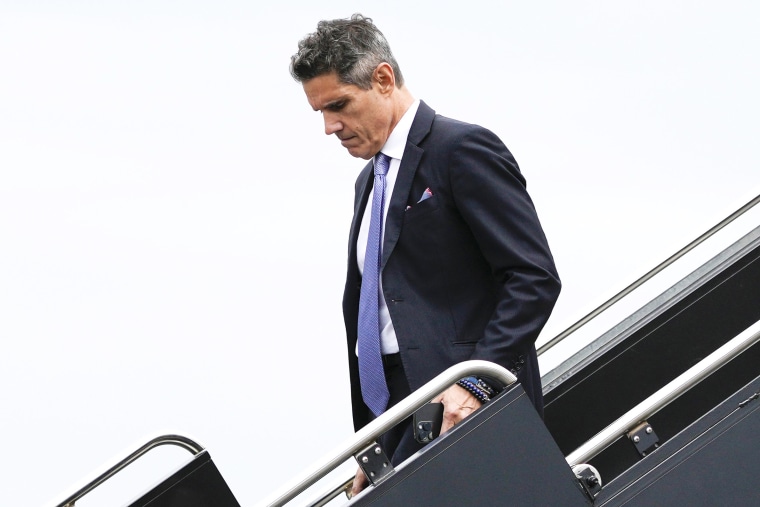As a result of his third criminal indictment, former President Donald Trump is now facing charges in connection with his efforts to overturn the results of the 2020 presidential election. John Lauro, Trump’s newest attorney, immediately started pleading his client’s case. But while Lauro, a former federal prosecutor, is leading Trump’s legal defense, his public statements have sometimes sounded more like the advice of a political campaign chairman, rather than a criminal defense attorney.
In responding to that directive, Lauro said something I never heard any other criminal defense attorney say during my three decades of prosecuting cases.
I attended Trump’s Aug. 3 arraignment hearing in Washington, D.C. Magistrate Judge Moxila Upadhyaya, who presided over Trump’s D.C. arraignment, directed the prosecution and the defense to file proposed trial dates. In responding to that directive, Lauro said something I never heard any other criminal defense attorney say during my three decades of prosecuting cases.
“Your Honor,” Lauro said, “obviously in a case of this magnitude, there might be a massive amount of discovery and information that we would have to look through” before determining a proposed trial date. “We expect to vigorously address every single issue in this matter on behalf of Mr. Trump and on behalf of the American people.” (Emphasis mine.)
Wait a minute — on behalf of the American people? The sole and exclusive responsibility of criminal defense attorneys is to zealously represent the interests of their clients. They neither raise issues on behalf of nor represent the interests of the American people. That is literally the job of the prosecutor.
Lauro’s comments seemed to be parroting, mimicking and thereby supporting Trump’s often-heard refrain: “They’re not coming after me, they’re coming after you.” They were also entirely improper.
First, it is unethical for a defense attorney to state that he will be raising issues on behalf of the American people. Imagine if prosecutors started saying that they would be raising issues on behalf of the defendants they were prosecuting. That likely would result in a referral to bar counsel for prosecutorial misconduct.
Indeed, a defense attorney could and should object to the absurd notion that a prosecutor would raise an issue that was “in the interest of” the very defendant the prosecution was seeking to convict and potentially imprison.
But more concerning is the way Lauro seemed to be signaling to Trump’s supporters that he is fighting for them, and representing their interests and issues. This is wildly misleading, at best. Here’s hoping presiding Judge Tanya Chutkan instructs him to cut it out.
It’s pure folly for Lauro to tell Trump supporters he’s fighting for them when, in reality, he must put Trump’s interests above that of everyone else.
Defense attorneys must act in the best interests of the defendants they represent, no matter the collateral damage. It’s pure folly for Lauro to tell Trump supporters he’s fighting for them when, in reality, he must put Trump’s interests above that of everyone else, including the American people.
Said another way, a defense attorney who represents a person who committed crimes of violence will represent the interests of that client, regardless of the danger to the community an acquittal could create. But Lauro’s argument is tantamount to a defense attorney in a violent crime case asserting that he’s representing the interests of the community members when, in fact, he’s potentially endangering them by fighting for a verdict of not guilty.
Unfortunately, Lauro’s misleading statements have not been confined to the courtroom. Making the rounds on the Sunday news programs, he insisted, repeatedly, that the prosecutors are somehow violating Trump’s First Amendment rights by prosecuting him for his efforts to overturn the election.
Even the most casual reading of Trump’s D.C. indictment belies the notion that the criminal charges are in any way based on Trump’s words, whether those words were true or false. As the indictment itself states: “The defendant had a right, like every American, to speak publicly about the election and even to claim, falsely, that there had been outcome-determinative fraud during the election and that he had won.” The criminal charges in the indictment are not based on talk. They are based on criminal conduct.
Trump is being charged with entering into multiple conspiracies designed to overturn the results of the 2020 election. A conspiracy is an agreement between two or more people to commit a crime, followed by an act by one of the conspirators toward the commission of the crime, what the law refers to as “overt act.” While it is true that conspirators use words in furtherance of their criminal agreement, those words are not somehow constitutionally immune from being part and parcel of criminal conduct.
Lauro’s claim that Trump is being prosecuted for First Amendment protected speech might have resonated if special counsel Jack Smith had charged Trump specifically with inciting an insurrection Jan. 6, 2021. If Smith had indicted Trump on charges of telling his supporters to “fight like hell or they won’t have a country anymore,” “march to the Capitol” and “stop the steal,” Lauro would have had a colorable claim that Trump is being prosecuted for his words.
It almost feels like Lauro is still defending Trump against the indictment he expected, rather than the indictment the grand jury actually handed down.
These misrepresentations deceive the American people — at least, those who are unwilling or unable to discern fact from fiction. As my friend and MSNBC legal analyst Joyce Vance said on “Morning Joe,” Lauro’s misleading statements are, in effect, “an extension of the big lie.”
Attorneys have a duty of candor to the court and a responsibility not to say anything publicly that could undermine or derail a fair trial. If Trump’s attorneys take those obligations seriously, then they should stop mimicking their client’s dangerous propaganda and focus on actual legal defenses and legitimate lawyering.

